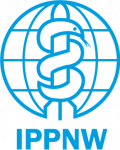Contact Us
email: info@nextgenu.org
Follow Us
NextGenU.org offers free courses and certificates, covering curricula across the health sciences, making these materials openly available to learners, teachers, and institutions. NextGenU.org partners with learning institutions to build capacity in public health, medicine, nursing, humanitarian response, primary STEM, community health, and addiction medicine.




